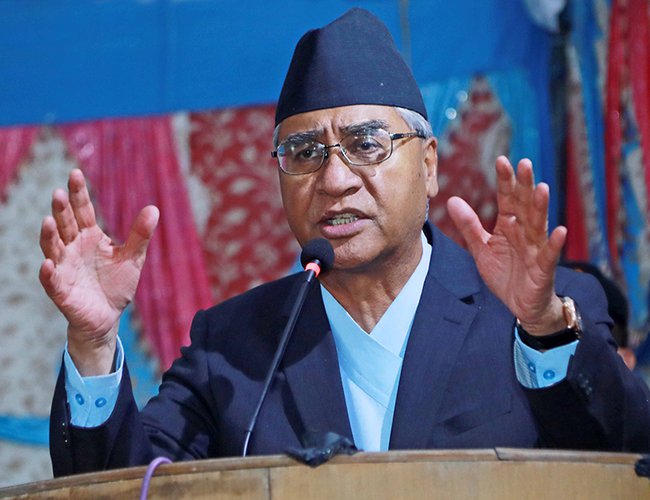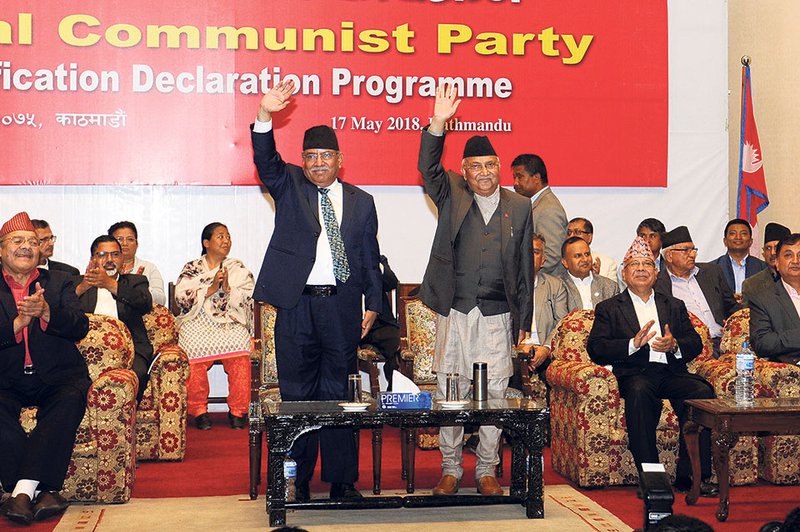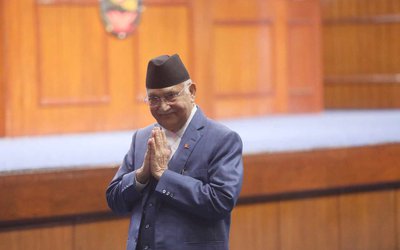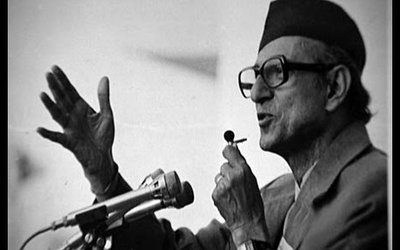
Former Prime Minister and leader of Nepali Congress Sher Bahadur Deuba has been harping on the same slogan for the last ten months that Nepal is heading towards an authoritarian rule.
People rejected Deuba’s plea, voting Nepal Communist Party with close to two thirds in majority in the House of Representatives at the center and all other six provincial elections.
Deuba’s party colleagues including Ram Chandra Poudel and other senior leaders criticized his one point slogan on authoritarianism in Nepal for party’s debacle in the last elections.
Whatever his colleagues said, NC leader continued to harp on the threat of authoritarianism in Nepal under the disguise of Nepal Communist Party. “This government will impose an authoritarian rule in the country. Instead of criticizing me, unite to fight against the authoritarian rule,” said Deuba, addressing a meeting of the chairs of district committees.
“The government under the leadership of KP Sharma Oli has been taking step after step to curtail the freedom of individual and democratic rights of the people. The time has come to resist the government of Nepal Communist Party,” thundered Deuba.
Deuba’s statement is not just a hoax. The recent activities of the present government have given reasons for people to suspect the government's intention. In the last two months, the government announced several steps, which are against the practice of the last one decade.

Announcing Integrity Law and 18-point guidelines to NGOs and INGOs working in Nepal, the present government has shown that it wants a control over the freedom of civil society organizations. Following the opposition from various groups, the government temporarily suspended the decision but it is keeping the sword in its hand.
The recently-proposed Press Act and Press Council Act too has certain provisions which will curtail the freedom of the press currently enjoyed by all kinds of media outlets.
An idea has already been floated by Ministry of Information regarding developing the guidelines to control the access of people in social media, including Facebook and Twitter.
At a time the main opposition party Nepali Congress and civil society organizations are expressing concern over the authoritarian nature of government, Ministry of Culture, Tourism and Civil Aviation issued guidelines, opening the space for party control in the management of temples.
Under the Tithe (Bhetighati) Management Guidelines, the government permits the local community management committees to hand the donations and other matters of priests of temples. Since ninety percent of temples in Kathmandu Valley have been running under their own traditional systems with the supremacy of priest, the recent decision is likely to spark a conflict.
With a two-thirds majority in its hand, the government can go to any extent. Given the current global political trend, nothing can be ruled out either. However, leaders of Nepal Communist Party dismiss former Prime Minister Deuba’s warning as a slogan to gain popularity.
“There is no reason worry. We are committed to democracy. However, we will not tolerate anarchy anymore. In the name of freedom, we will not allow anarchy and character assassination,” said Gokul Baskota, minister of information and communication.
Prime Minister K.P. Sharma Oli officially said that he prefers the Chinese model with stable government and controlled freedom. Whether former prime minister Sher Bahadur Deuba, who was jailed for almost 8 years during the Panchayat days, is known as harping on the threat of authoritarianism to gain political mileage or not, the recent actions of the government are proving him right.

Keshab Poudel
Poudel is the editor of New Spotlight Magazine.
- HELVETAS NEPAL’S RIVERBED FARMING: Shift From Overseas To Local Farming
- Jul 26, 2024
- POLITICAL SCENARIO : K.P. Sharma Oli's Resurgence
- Jul 21, 2024
- UNDP/MinErgy: An Inventive Approach To Clean Brick Kiln
- Jul 19, 2024
- HELVETAS NEPAL: Nutrition Through Riverbed Farming
- Jul 18, 2024
- NOU Opens To All: Dr. Shilu Manandhar Bajracharya, Vice Chancellor
- Jul 15, 2024















